The NYBG Urban Naturalist Certificate Program equips you with the observation, identification, and documentation skills you need to become an effective environmental steward. Using NYBG grounds and select New York City Parks, you will learn to keenly observe the natural world, create scientifically useful records of your observations, and investigate the interrelationships between species. NYBG Urban Naturalists work as environmental educators, help manage invasive species in local parks, and volunteer with our EcoFlora project to help document NYC plant species.
Those in pursuit of a Certificate must complete 107 total course hours (77 required + 30 elective), plus a Field Study project. Browse this page to discover what required courses are currently scheduled.
March
|
|
|
|
This is the class for plant-lovers eager to up their game! Learn the terminology and basic botanical nomenclature that will help you recognize and describe key differences in common plants.
|
|
263BOT308EO
|
03/13
|
Fr
|
11:00am-1:00pm
|
Bucuvalas
|
ONLINE
|
April
|
|
|
|
Witness
the
diversity
of
plants
in
the
northeast
as
they
flower
and
set
seed
in
rapid
succession.
Follow
the
bloom
sequence
of
spring
wildflowers,
shrubs
and
trees
during
this
much
anticipated
season
of
rebirth.
Learn
to
identify
native
plants
using
more...
|
|
264BOT333
|
04/11
|
Sa
|
11:00am-2:00pm
|
Slowik
|
NYBG
|
|
|
|
|
This is the class for plant-lovers eager to up their game! Learn the terminology and basic botanical nomenclature that will help you recognize and describe key differences in common plants.
|
|
264BOT308AO
|
04/12
|
Su
|
10:00am-12:00pm
|
Sparreo
|
ONLINE
|
|
|
|
|
With
its
variety
of
habitats
and
position
on
the
Atlantic
Flyway,
NYC
is
a
bird-lover's
paradise!
Over
300
distinct
resident
or
migratory
species
live
or
pass
through
here
each
year,
including
many
nesting
species
such
as
Peregrine
Falcons,
Red-tailed
Hawks,
more...
|
|
264NAT317ABL
|
04/15
|
We
|
10:00am-12:00pm
|
Chaya
|
BLENDED
|
|
264NAT317BBL
|
04/19
|
Su
|
10:00am-12:00pm
|
Chaya
|
BLENDED
|
May
|
|
|
|
This is the class for plant-lovers eager to up their game! Learn the terminology and basic botanical nomenclature that will help you recognize and describe key differences in common plants.
|
|
264BOT308BO
|
05/27
|
We
|
10:00am-12:00pm
|
Bucuvalas
|
ONLINE
|
|
|
|
|
Learn
to
measure
and
monitor
the
ecological
diversity
observed
and
celebrated
in
and
around
New
York
City
environs.
Practice
using
field
techniques
for
recording
observations
in
nature
while
walking
along
trails
in
the
Garden.
Explore
the
biodiversity
within
your
chosen
more...
|
|
264NAT323A
|
05/30
|
Sa
|
10:00am-1:00pm
|
Slowik
|
NYBG
|
June
|
|
|
|
Learn
to
identify
native
and
introduced
herbs,
ferns,
shrubs,
and
trees
as
they
appear
in
summer,
and
get
to
know
plants
that
may
be
found
in
fields,
on
roadsides,
and
in
woodlands
and
wetlands.
Learn
about
basic
plant
structure
and
more...
|
|
264BOT334BL
|
06/02
|
Tu
|
6:00pm-8:00pm
|
Holmes
|
BLENDED
|
|
|
|
|
The
tri-state
area
contains
many
distinct
ecosystems,
including
woodlands,
salt
marshes,
meadows,
and
fresh
water
wetlands.
Study
the
unique
characteristics
of
local
habitats
and
the
species
they
support,
paying
close
attention
to
interspecies
relationships.
We'll
spend
time
in
Pelham
Bay
more...
|
|
264NAT337ABL
|
06/06
|
Sa
|
10:00am-12:00pm
|
Herrera
|
OFS-BL
|
|
|
|
|
Delve
into
the
fascinating
world
of
the
creatures
that
make
up
84%
of
the
Animal
Kingdom—what
renowned
biologist
E.O.
Wilson
once
called
"the
little
things
that
run
the
world."
We'll
discuss
the
roles
that
insects
play—both
in
maintaining
healthy
ecosystems
more...
|
|
264NAT322ABL
|
06/24
|
We
|
10:00am-12:00pm
|
Chaya
|
BLENDED
|
July
|
|
|
|
This is the class for plant-lovers eager to up their game! Learn the terminology and basic botanical nomenclature that will help you recognize and describe key differences in common plants.
|
|
271BOT308CO
|
07/27
|
Mo
|
6:00pm-8:00pm
|
Holmes
|
ONLINE
|
August
|
|
|
|
Urban
flora
can
be
found
in
unlikely
places,
from
city
sidewalks
and
highway
medians,
to
lawns
and
other
man-made
environments.
Most
of
these
plants
are
introduced
and
many
are
considered
weeds.
Explore
their
origins,
life
cycles,
and
benefits
to
the
more...
|
|
271NAT332BL
|
08/13
|
Th
|
10:00am-11:00am
|
Slowik
|
ONLINE
|
|
|
|
|
This is the class for plant-lovers eager to up their game! Learn the terminology and basic botanical nomenclature that will help you recognize and describe key differences in common plants.
|
|
271BOT308DO
|
08/14
|
Fr
|
10:00am-12:00pm
|
Bucuvalas
|
ONLINE
|
September
|
|
|
|
Learn
to
measure
and
monitor
the
ecological
diversity
observed
and
celebrated
in
and
around
New
York
City
environs.
Practice
using
field
techniques
for
recording
observations
in
nature
while
walking
along
trails
in
the
Garden.
Explore
the
biodiversity
within
your
chosen
more...
|
|
271NAT323B
|
09/02
|
We
|
10:00am-1:00pm
|
Slowik
|
NYBG
|
|
|
|
|
Delve
into
the
fascinating
world
of
the
creatures
that
make
up
84%
of
the
Animal
Kingdom—what
renowned
biologist
E.O.
Wilson
once
called
"the
little
things
that
run
the
world."
We'll
discuss
the
roles
that
insects
play—both
in
maintaining
healthy
ecosystems
more...
|
|
271NAT322BBL
|
09/12
|
Sa
|
10:00am-12:00pm
|
Chaya
|
BLENDED
|
|
|
|
|
The
tri-state
area
contains
many
distinct
ecosystems,
including
woodlands,
salt
marshes,
meadows,
and
fresh
water
wetlands.
Study
the
unique
characteristics
of
local
habitats
and
the
species
they
support,
paying
close
attention
to
interspecies
relationships.
We'll
spend
time
in
Pelham
Bay
more...
|
|
271NAT337BBL
|
09/12
|
Sa
|
10:00am-12:00pm
|
Herrera
|
OFS-BL
|
|
|
|
|
With
its
wide
variety
of
habitats
and
its
position
on
the
Atlantic
Flyway,
NYC
is
a
bird-lover's
paradise.
Over
300
distinct
resident
or
migratory
species
live
here
or
pass
through,
including
many
nesting
species
such
as
Peregrine
Falcons,
Red-tailed
Hawks,
more...
|
|
271NAT321BL
|
09/16
|
We
|
10:00am-12:00pm
|
Chaya
|
BLENDED
|
|
|
|
|
In autumn our native Northeast flora can be spectacular, but difficult to identify. With a 10X power hand lens and a plant key, you'll learn to identify these wildflowers, shrubs, and trees on the Garden grounds.
|
|
271BOT331
|
09/17
|
Th
|
10:00am-1:00pm
|
Slowik
|
NYBG
|
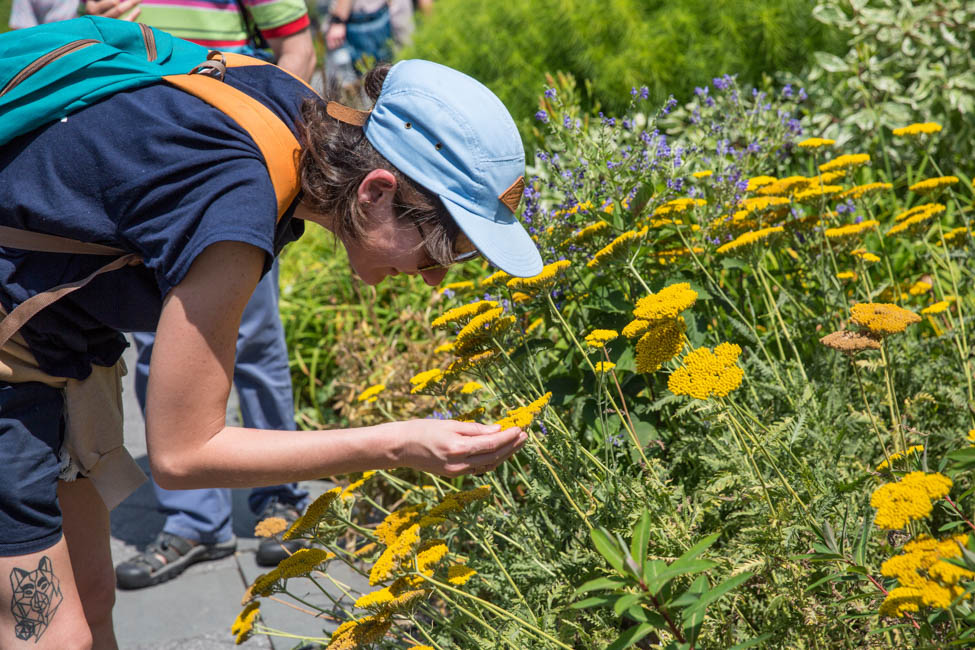


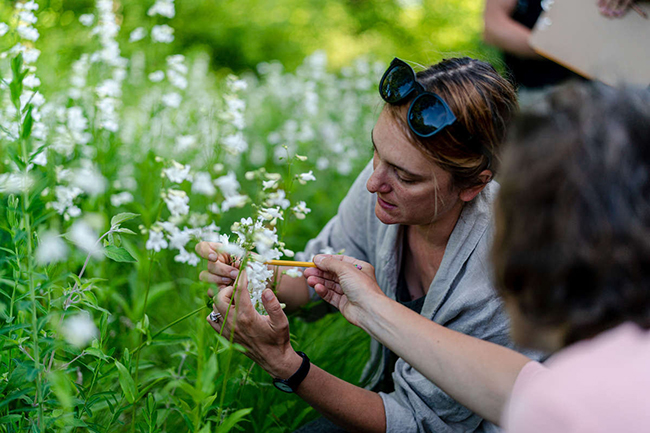





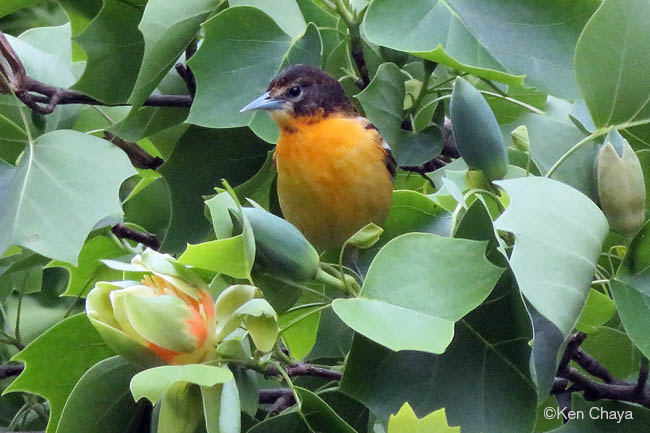





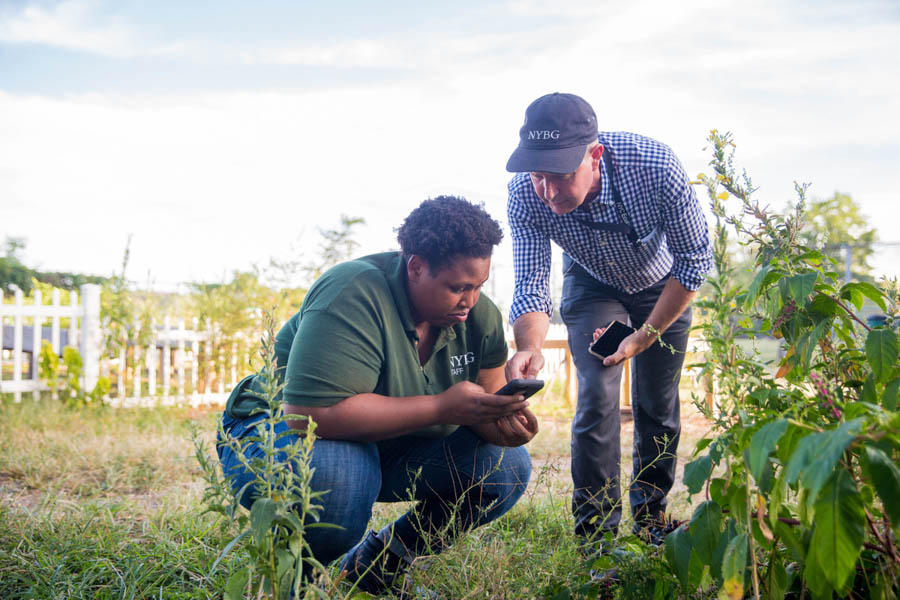


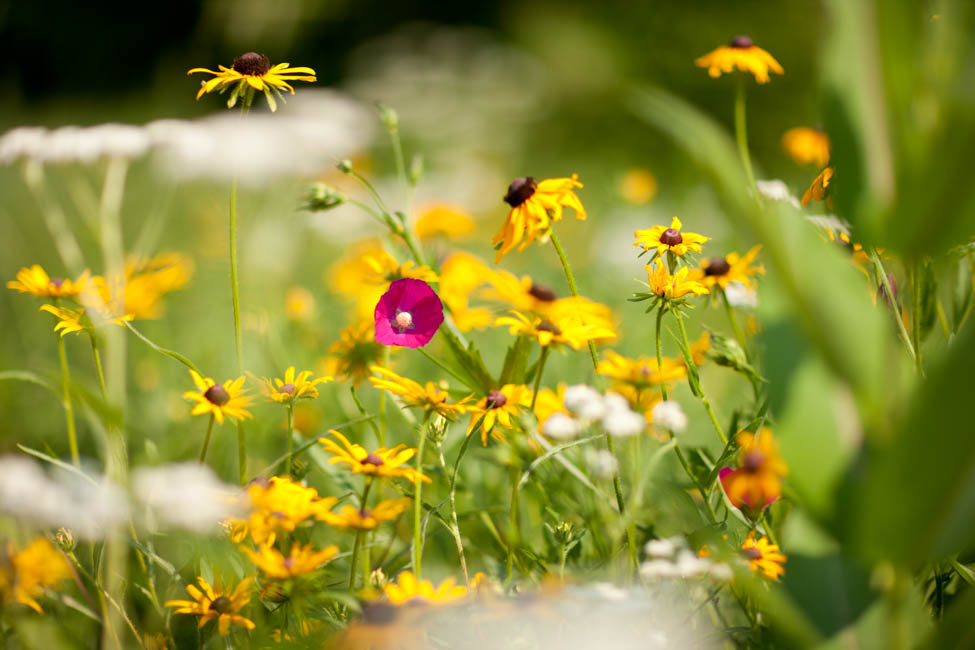


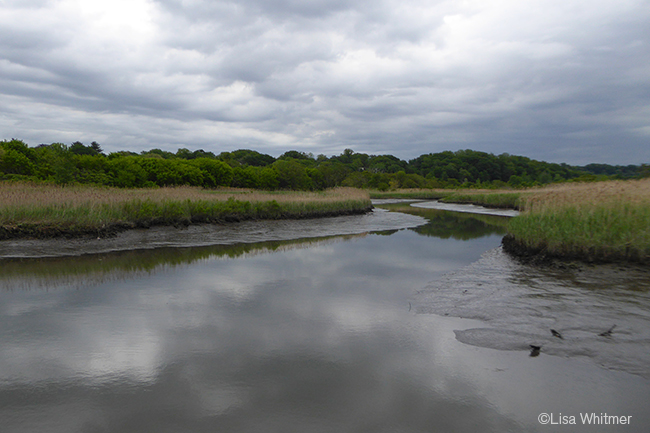


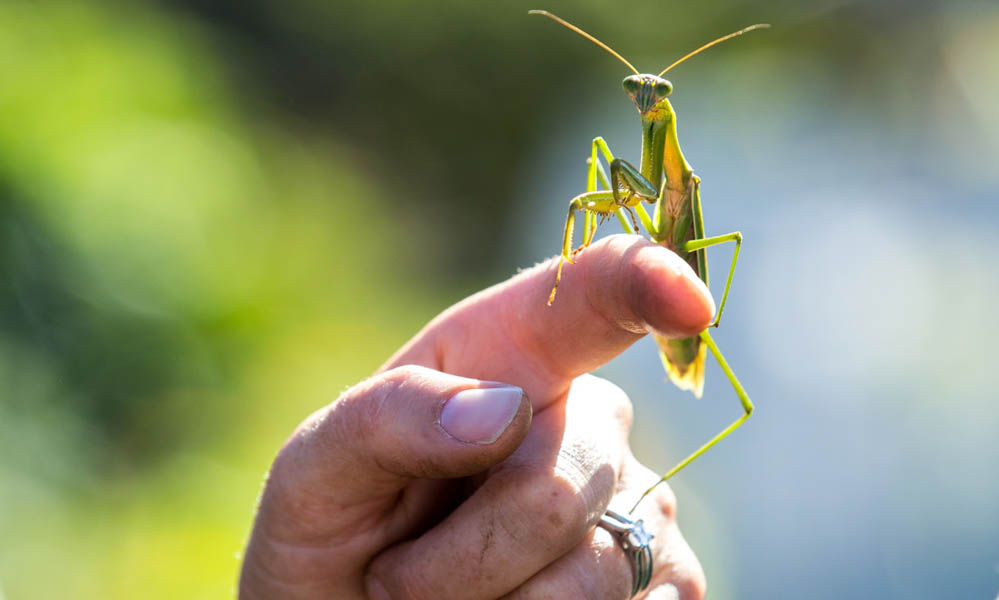





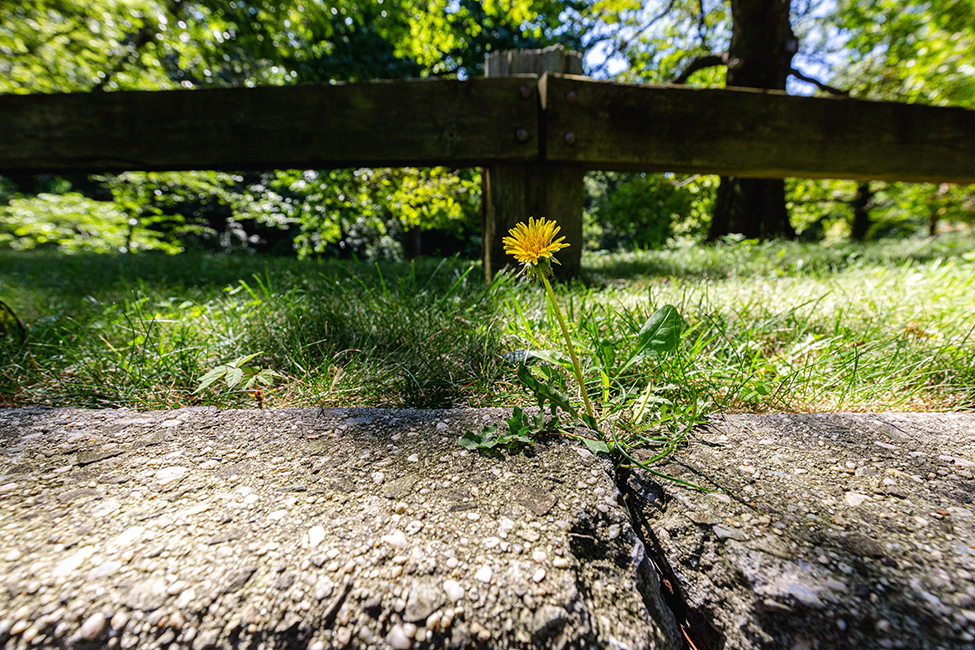














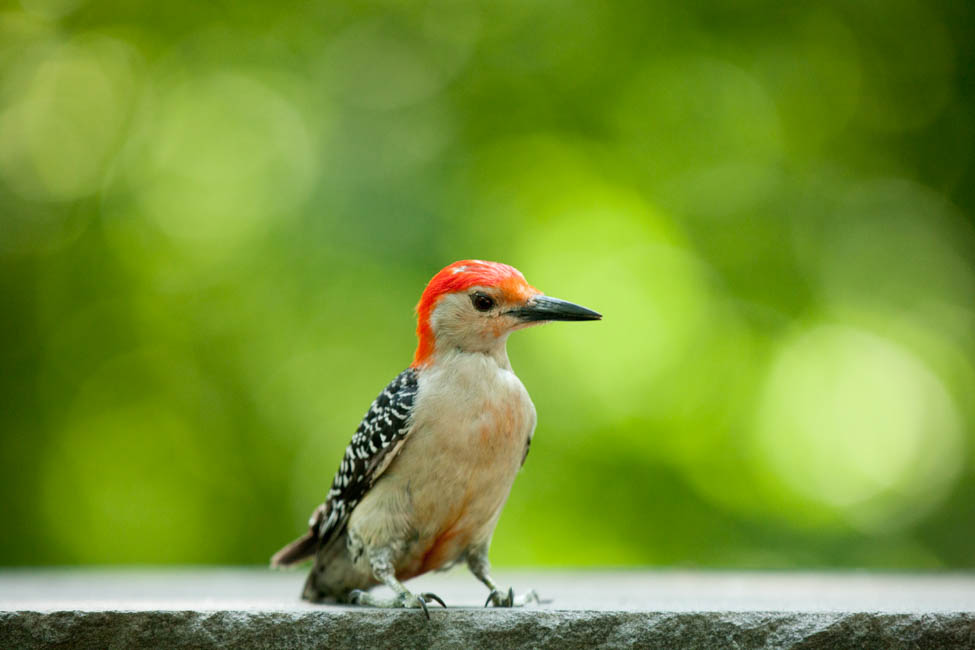


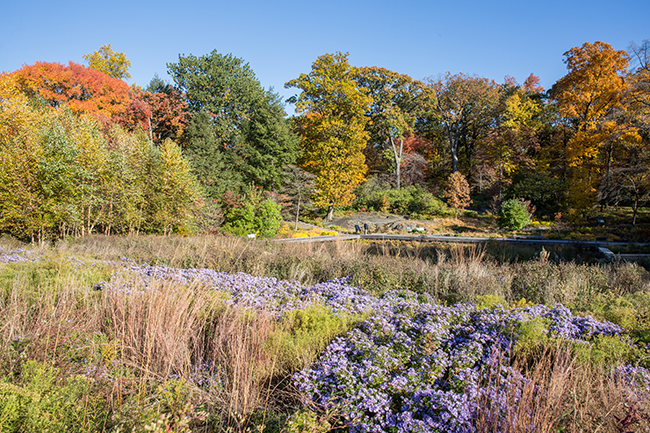



 Cart (0)
Cart (0)
